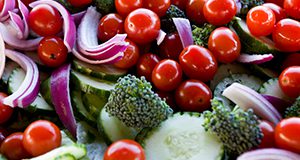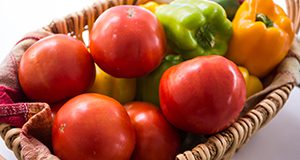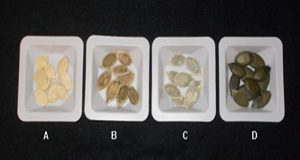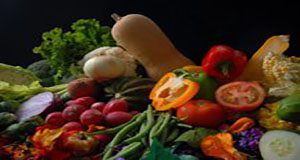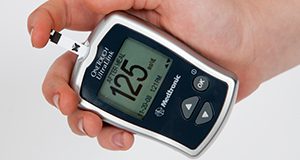This publication is designed to give you some information about the social, mental, and physical development of your five-year-old child. This new 5-page fact sheet discusses nutrition, eating behaviors, healthy food options, cooking activities, and physical activity. Written by Claire Marie Fassett and Karla P. Shelnutt, and published by the UF/IFAS Department of Family, Youth and Community Sciences, January 2018.
http://edis.ifas.ufl.edu/fy1475
Category: Families & Consumers
Healthy Meal Plans
A meal plan is a guide to help you plan daily meals and snacks. It allows you to eat foods you enjoy that provide a good balance of nutrients for your health. Meal plans can be used by anyone interested in healthy eating, and they are very helpful for people who want to manage their weight. This 20-page fact sheet is a major revision that discusses meal plans, food lists, and healthy choices. Written by Linda B. Bobroff, and published by the UF/IFAS Department of Family, Youth and Community Sciences, revised December 2017.
http://edis.ifas.ufl.edu/fy522
Food Safety on the Farm: Good Agricultural Practices and Good Handling Practices-Worker Health and Hygiene
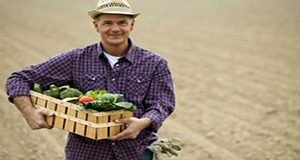
The ‘Food Safety on the Farm’ series is a collection that reviews the generally recognized principles of GAPs (good agricultural practices) as they relate to produce, primarily at the farm level and with particular focus on fresh Florida crops and practices. This 4-page publication focuses on GAPs and GHPs (good handling practices) relating specifically to worker health and hygiene. Written by Jessica A. Lepper, Keith R. Schneider, Renee M. Goodrich-Schneider, and Aswathy Sreedharan and published by the UF/IFAS Food Science and Human Nutrition Department, December 2017.
http://edis.ifas.ufl.edu/fs158
Food Safety on the Farm: Good Agricultural Practices and Good Handling Practices-Field Sanitation
The ‘Food Safety on the Farm’ series is a collection that reviews the generally recognized principles of GAPs (good agricultural practices) as they relate to produce, primarily at the farm level and with particular focus on fresh Florida crops and practices. This 4-page publication focuses on GAPs and GHPs (good handling practices) relating specifically to field sanitation. Written by Jessica A. Lepper, Aswathy Sreedharan, Renee M. Goodrich-Schneider, and Keith R. Schneider and published by the UF/IFAS Department of Food Science and Human Nutrition, December 2017.
http://edis.ifas.ufl.edu/fs160
Healthy Eating: Lowering Your Blood Pressure with DASH
One eating plan that has been shown to prevent and reduce high blood pressure is DASH. This 3-page fact sheet is a major revision that discusses the DASH eating plan, its importance, foods included in the eating plan, and servings. Written by Valerie Weyenberg, Karla P. Shelnutt, and Linda B. Bobroff, and published by the UF/IFAS Department of Family, Youth and Community Sciences, revised December 2017.
http://edis.ifas.ufl.edu/fy1128
Cuba and US: Food Customs and Health
Cubans currently make up the third largest Hispanic population in the US, with many living in Florida (mostly in Miami). Therefore, their cultural influence is notable, especially when it comes to cuisine. This 3-page document discusses traditional meals, diet, and health among Cubans. Written by Agata Kowalewska and Edwin Makarevich and published by the UF/IFAS Food Science and Human Nutrition Department, December 2017.
http://edis.ifas.ufl.edu/fs303
Living Well to Keep Your Pressure Down
High blood pressure, or hypertension, can cause serious health problems. It makes your heart work harder and can damage your blood vessels even if you feel okay. Everyone should have their blood pressure checked regularly. If you have certain risk factors, you are more likely to have high blood pressure. This 6-page fact sheet is a major revision that discusses risk factors and ways to reduce risk. Written by Linda B. Bobroff, and published by the UF/IFAS Department of Family, Youth and Community Sciences, revised November 2017.
http://edis.ifas.ufl.edu/fy305
Peach Consumption: A Profile of Purchasers and Non-Purchasers
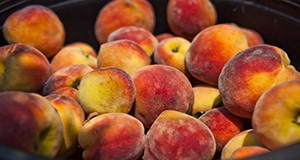
Peaches are among the most commonly produced fruits in the United States; understanding consumer awareness, perceptions, and preferences regarding Florida peaches is important to the future of the industry. This 5-page document addresses consumers’ perceptions of Florida peaches, purchasing motivations and barriers, preferred packaging options and opportunities, purchasing locations, and knowledge of peach health benefits. Written by Joy Rumble, Kara Harders, and Kathryn Stofer and published by the UF/IFAS Department of Agricultural Education and Communication, December 2017.
http://edis.ifas.ufl.edu/wc288
Health Benefits of Pumpkin Seed and Nutrition Profile of 35 Pumpkin Accessions
Pumpkin seed is high in oil, protein, and total unsaturated fatty acids and is a popular ingredient in snacks and other foods sold across the country. This 5-page article will discuss the health benefits, production, processing, and nutritional profile of pumpkin seed. Written by Geoffrey Meru, Yuqing Fu, Dayana Leyva, Paul Sarnoski, and Yavuz Yagiz and published by the UF/IFAS Horticultural Sciences Department, November 2017.
http://edis.ifas.ufl.edu/hs1312
Best Practices for Shoppers at the Farmers' Market
Farmers’ markets are popular, diverse places to shop for fresh, local food, nursery stock, handmade crafts, and much more. This 3-page fact sheet is one in a “Florida Farmers’ Markets” series and offers recommendations for shoppers for a successful farmers’ market experience. Written by Maria Rometo, Jamie Sapijaszko, and Soohyoun Ahn and published by the UF/IFAS Department of Food Science and Human Nutrition, November 2017.
http://edis.ifas.ufl.edu/fs302
Food Allergies
A food allergy is a specific immune system reaction that happens after a person consumes what is normally considered a safe food. Reactions can range in severity from minor to fatal. This 4-page document discusses the cause, symptoms, and management of food allergies in children and adults. Written by Keith R. Schneider, Renee Goodrich-Schneider, Soohyoun Ahn, Susie Richardson, Ploy Kurdmongkoltham, and Bruna Bertoldi and published by the UF/IFAS Department of Food Science and Human Nutrition, November 2017.
http://edis.ifas.ufl.edu/fs123
Facts About Vitamin D
Vitamin D is needed for normal absorption of calcium and phosphorus. It helps put these minerals into bones and teeth. This makes bones stronger and reduces risk for bone fractures. Vitamin D also helps keep the immune system functioning normally, so our bodies can resist some types of disease. This 3-page fact sheet is a major revision that discusses effects of vitamin D deficiency, intake recommendations, and sources of vitamin D. Written by Linda B. Bobroff and Isabel Valentín-Oquendo, and published by the UF/IFAS Department of Family, Youth and Community Sciences, revised November 2017.
http://edis.ifas.ufl.edu/fy207
Food Safety Tips for the Holiday Season
Food is always an important part of holiday festivities, but holiday meals can take a turn for the worse if food safety is not properly practiced when preparing and cooking the food. This 7-page factsheet provides information about safe food practices for the holidays. Written by Soohyoun Ahn, Jessica A. Lepper, and Keith R. Schneider and published by the UF/IFAS Department of Food Science and Human Nutrition, November 2017.
http://edis.ifas.ufl.edu/fs260
Florida Peaches: A Perfect Snack
The growing conditions in Florida have given Florida-grown peaches unique characteristics that make them an ideal springtime snack. This 3-page document discusses the characteristics, health benefits, purchase, and storage of Florida peaches. Written by Joy Rumble, Kara Harders, and Kathryn Stofer and published by the UF/IFAS Department of Agricultural Education and Communication, November 2017.
http://edis.ifas.ufl.edu/wc287
Microirrigation for Home Landscapes
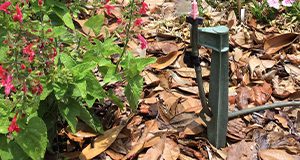 Microirrigation is a way to water plants using low pressure and low flowrates (usually 15 psi or less and 60 gph or less). Microirrigation systems can be easy to install above, on, or below the soil or mulch in landscape beds and are inexpensive to purchase. This 3-page fact sheet discusses types of microirrigation systems, benefits, design and installation, and maintenance. Written by Anne Yasalonis and Michael Dukes, and published by the UF/IFAS Department of Agricultural and Biological Engineering, October 2017.
Microirrigation is a way to water plants using low pressure and low flowrates (usually 15 psi or less and 60 gph or less). Microirrigation systems can be easy to install above, on, or below the soil or mulch in landscape beds and are inexpensive to purchase. This 3-page fact sheet discusses types of microirrigation systems, benefits, design and installation, and maintenance. Written by Anne Yasalonis and Michael Dukes, and published by the UF/IFAS Department of Agricultural and Biological Engineering, October 2017.
http://edis.ifas.ufl.edu/ae524
Next Stop: Job!
 Next Stop: Job is a multi-lesson program designed to teach youth, ages 14 and up, the skills necessary to obtain a job. Through videos and hands-on activities, youth learn essential job market skills, such as marketing, communication, writing skills, and financial literacy, to help them succeed in the workplace. This 28-page publication discusses cover letters, resumes, interviews, proper attire, and management of earnings. Written by Vanessa Spero-Swingle, Laura Cash, Laura Valencia, Gayle Whitworth, Karen Miliffe, and Shane Michael, and published by the UF/IFAS 4-H Youth Development Department, June 2017.
Next Stop: Job is a multi-lesson program designed to teach youth, ages 14 and up, the skills necessary to obtain a job. Through videos and hands-on activities, youth learn essential job market skills, such as marketing, communication, writing skills, and financial literacy, to help them succeed in the workplace. This 28-page publication discusses cover letters, resumes, interviews, proper attire, and management of earnings. Written by Vanessa Spero-Swingle, Laura Cash, Laura Valencia, Gayle Whitworth, Karen Miliffe, and Shane Michael, and published by the UF/IFAS 4-H Youth Development Department, June 2017.
http://edis.ifas.ufl.edu/4h377
Prevencion de Caidas: Seguridad en el Hogar
La casa donde usted ha vivido la mayor parte de su vida ahora puede causarle problemas a medida que envejece. Lo bueno es que hay cambios que puede hacer para reducir el riesgo de caídas y mantener su casa un lugar seguro para vivir. Use la siguiente lista para identificar posibles áreas problemáticas en su casa. Repasado julio 2017. Written by Linda B. Bobroff, and published by the UF Department of Family, Youth and Community Sciences.
http://edis.ifas.ufl.edu/fy859
Sick Day Management for Adults with Diabetes Who Take Insulin
When people have type 1 or type 2 diabetes and take multiple daily insulin injections, their blood glucose levels can rise drastically due to a cold or another minor illness. This can result in serious health problems. The best way for people with diabetes to prevent a minor illness from becoming a major illness is to have a personalized sick day plan designed with their health care provider before they become ill. This 4-page fact sheet is a major revision that discusses ways in which illness affects diabetes control, development of a sick day plan, times to call your health care provider, checking blood glucose and urine ketones, medicines, and diet. Written by Nancy J. Gal and Linda B. Bobroff, and published by the UF Department of Family, Youth and Community Sciences, revised June 2017.
http://edis.ifas.ufl.edu/fy1281
South Florida Tropicals: Carambola
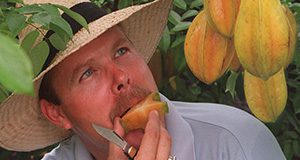 The carambola or star fruit is native to Southeast Asia. It was introduced to Florida about 100 years ago. This 4-page fact sheet is a major revision that discusses availability, selection, uses, nutritive value, and food safety during preparation of carambola. This document also includes several recipes. Written by Amy Simonne and Linda B. Bobroff, and published by the UF Department of Family, Youth and Community Sciences, revised April 2017.
The carambola or star fruit is native to Southeast Asia. It was introduced to Florida about 100 years ago. This 4-page fact sheet is a major revision that discusses availability, selection, uses, nutritive value, and food safety during preparation of carambola. This document also includes several recipes. Written by Amy Simonne and Linda B. Bobroff, and published by the UF Department of Family, Youth and Community Sciences, revised April 2017.
http://edis.ifas.ufl.edu/he613
Healthy Eating: Understanding the Nutrition Facts Label
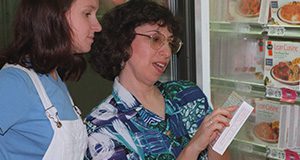 The U.S. Food and Drug Administration (FDA) requires that most food packages have the Nutrition Facts label. This label contains information about nutrients in the food to help people make healthier food choices. Older adults can use the label to choose foods that provide required daily nutrients or fit with a diet plan to manage a disease or health condition. This 4-page fact sheet is a major revision that discusses the Nutrition Facts label, checking calories, limiting certain nutrients, % Daily Values, and consuming enough fiber, vitamin D, potassium, calcium, and iron. Written by Linda B. Bobroff and Karla P. Shelnutt, and published by the UF Department of Family, Youth and Community Sciences, revised May 2017.
The U.S. Food and Drug Administration (FDA) requires that most food packages have the Nutrition Facts label. This label contains information about nutrients in the food to help people make healthier food choices. Older adults can use the label to choose foods that provide required daily nutrients or fit with a diet plan to manage a disease or health condition. This 4-page fact sheet is a major revision that discusses the Nutrition Facts label, checking calories, limiting certain nutrients, % Daily Values, and consuming enough fiber, vitamin D, potassium, calcium, and iron. Written by Linda B. Bobroff and Karla P. Shelnutt, and published by the UF Department of Family, Youth and Community Sciences, revised May 2017.
http://edis.ifas.ufl.edu/fy1127

